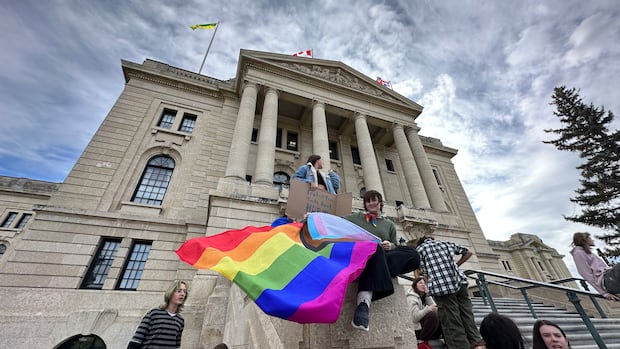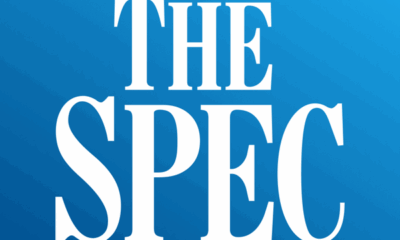Top Stories
Supreme Court to Hear Urgent Appeal on Saskatchewan Pronoun Law

UPDATE: The Supreme Court of Canada has just announced it will hear urgent appeals challenging Saskatchewan’s controversial school pronoun law. This pivotal decision comes as the law, enacted in 2023, prohibits children under 16 from changing their names or pronouns at school without parental consent, drawing widespread scrutiny from advocacy groups.
The Saskatchewan government, led by Premier Scott Moe, invoked the Charter of Rights and Freedoms’ notwithstanding clause to enforce this legislation, which allows it to bypass certain Charter rights for a five-year period. The government argues that parental involvement is crucial in such decisions, emphasizing a traditional approach to family dynamics.
However, LGBTQ+ advocacy organization UR Pride warns that this law inflicts significant harm on gender-diverse youth, potentially leading to long-term psychological effects. The group asserts that the inability to express their identities freely in educational environments jeopardizes the well-being of these vulnerable individuals.
Earlier this year, the Saskatchewan Court of Appeal ruled that the challenge from UR Pride can proceed but noted it cannot strike down the legislation due to the notwithstanding clause. Instead, it may issue a declaratory judgment on whether this law infringes on constitutional rights. Both the government and UR Pride have appealed to the Supreme Court, requesting an expedited hearing to address this urgent matter.
Authorities confirm that this case will be heard alongside another significant challenge targeting a Quebec law that restricts public sector workers from wearing religious symbols. Quebec also invoked the notwithstanding clause, highlighting a growing trend across Canadian provinces to bypass constitutional protections in controversial legislation.
As the Supreme Court prepares to delve into these urgent issues, the implications of their ruling could reshape the landscape of rights for youth and public sector employees in Canada. Advocates are calling for immediate action, stressing the critical need to protect the identities and rights of all individuals, particularly those in marginalized communities.
This developing story is poised to have far-reaching consequences, as communities across Canada watch closely. Stay tuned for updates as the Supreme Court hearing date approaches, and the nation grapples with these pressing legal challenges.
-

 World4 months ago
World4 months agoScientists Unearth Ancient Antarctic Ice to Unlock Climate Secrets
-

 Entertainment4 months ago
Entertainment4 months agoTrump and McCormick to Announce $70 Billion Energy Investments
-

 Lifestyle4 months ago
Lifestyle4 months agoTransLink Launches Food Truck Program to Boost Revenue in Vancouver
-

 Science4 months ago
Science4 months agoFour Astronauts Return to Earth After International Space Station Mission
-

 Technology2 months ago
Technology2 months agoApple Notes Enhances Functionality with Markdown Support in macOS 26
-

 Top Stories4 weeks ago
Top Stories4 weeks agoUrgent Update: Fatal Crash on Highway 99 Claims Life of Pitt Meadows Man
-

 Sports4 months ago
Sports4 months agoSearch Underway for Missing Hunter Amid Hokkaido Bear Emergency
-

 Politics3 months ago
Politics3 months agoUkrainian Tennis Star Elina Svitolina Faces Death Threats Online
-

 Politics4 months ago
Politics4 months agoCarney Engages First Nations Leaders at Development Law Summit
-

 Technology4 months ago
Technology4 months agoFrosthaven Launches Early Access on July 31, 2025
-

 Top Stories2 weeks ago
Top Stories2 weeks agoFamily Remembers Beverley Rowbotham 25 Years After Murder
-

 Top Stories1 week ago
Top Stories1 week agoBlake Snell’s Frustration Ignites Toronto Blue Jays Fan Fury



















